
Surety professionals need an amazingly diverse skillset. First, they need financial and accounting skills; experts can teach those number skills. Less dependent on rote learning are “people skills”—intangibles that successful professionals rely on daily in serving clients and stakeholders.
In such a relationship-based industry, those people skills are essential. Producers and their colleagues must forge connections and build trust across all the different stakeholders and cultures of construction so that everyone stays on the same page and works toward the same goal.
It’s a big job. Making it even more of a challenge is that there’s an art to bringing the right competencies to bear when needed. That’s what defines success in surety, and that’s the combination NASBP surety professionals bring to the table every day.
The Producer as Mediator
Some successful practitioners will tell you they had no idea surety existed until someone told them. Others grow up in agencies with lifespans that extend across generations. Either way, it’s the skills that matter.
Tracy Tucker, 2021-22 NASBP President, is a second-generation surety producer who started NASBP member Tucker Agency in 1982 with his father. His son, Steven, also works for the firm. As the owner of a family business in Fort Worth, TX, Tucker wears many hats and deals with many different people, including construction professionals at firms from enterprise to startup size.
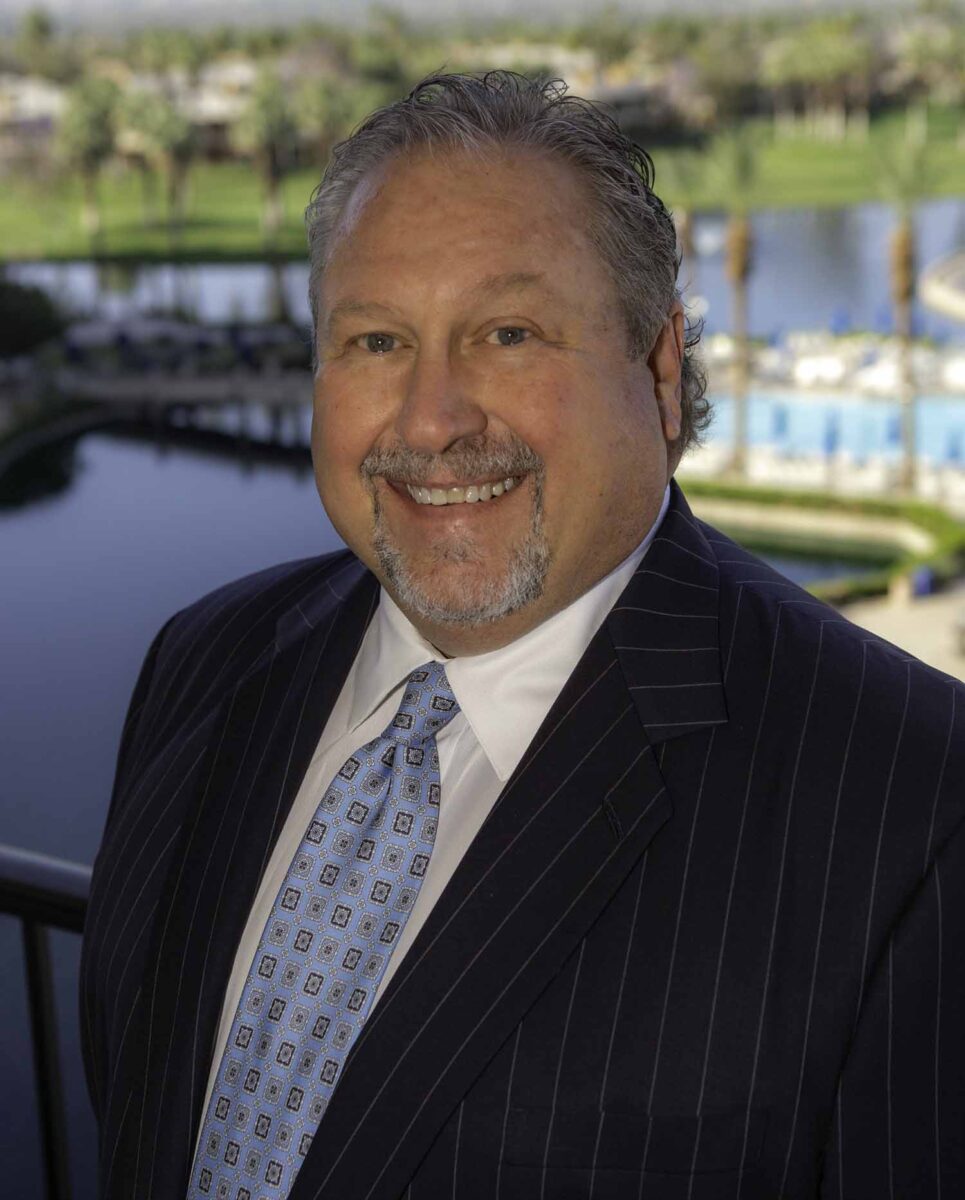
At NASBP’s William J. Angell Surety School, Tucker said, surety professionals from all walks of life and all stages of career development gather twice a year to learn new skills and network with peers. “If you’re moving into the surety world from somewhere else, business experience and skills in accounting, banking, law, and risk management are all helpful,” he said. “You don’t want to get into this business if you’re not comfortable with financial analysis.”
In college at Texas Christian University, Tucker majored in finance, a path he recommends. But he also contends that individuals interested in the industry today should probably have some communications courses under their belts. He argues that those skills are essential to success in the producer’s role because mediation is a crucial component. The agent sits in the middle between the underwriter and the contractor, and those parties may not speak the same language. It’s up to the agent to bridge the gap.
“You may be helping the surety company understand why your client wants to bid a job,” he said. “Or, you may be explaining to a startup operator what he or she needs to do to get to a point to even qualify for bonds.”
Juggling Competing Priorities
Ethel Pelletiere also focused on the numbers in college, graduating with a degree in accounting from Ramapo College of New Jersey. During an interview for what she intended to be her first accounting position at a large regional insurance agency, the company asked if she would consider working in the surety department.
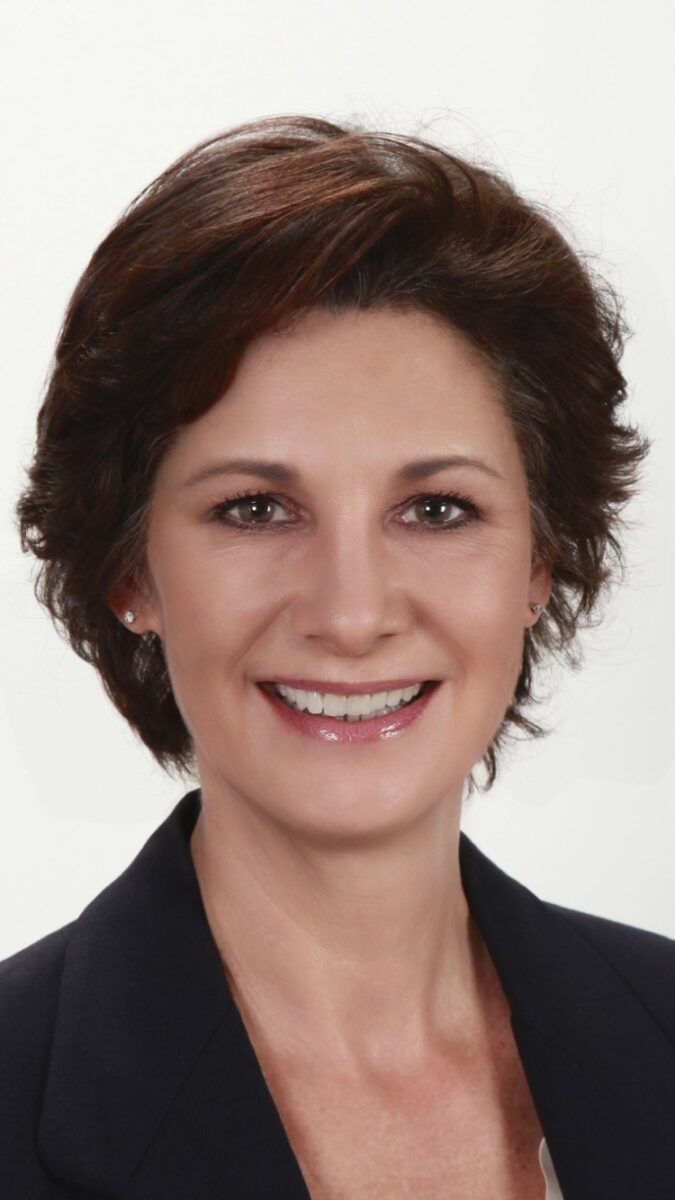
“The rest is history,” she said, but her path wasn’t that straightforward. She left surety, earned her CPA, and worked as an auditor before returning. Based in Washington, NJ, she currently serves as Vice President at Intact Surety, a NASBP Affiliate.
Pelletiere’s current role intersects with the law, accounting, finance, marketing, and communications. She’s called to interpret legal contracts, conduct financial analysis, and interact with business professionals, including CEOs, CFOs, risk managers, and executive assistants. That requires Pelletiere to think creatively and draw on various skills to get things done.
Her commitment to learning didn’t stop when she got out of college, and she recommends developing the habits of a lifelong student. “Read—and digest—multiple news publications and platforms,” she said. “You may find yourself working on a complex account, and that will prepare you when the opportunity presents itself.”
Because her days are so varied, Pelletiere also recommends coming to work every day in the right frame of mind, with honesty, integrity, and consistency always crucial commitments. “A strong work ethic helps when juggling competing priorities,” she said.
Reading Between the Lines
Although Pelletiere trained as an accountant, she’s worked with surety professionals who studied political science, physics, education, and drama.
Chris Downey has that type of background. He’s a second-generation surety professional who grew up running bonds at his father’s firm, NASBP member Downey and Company, located in Albuquerque, NM. He has served as President of Downey and Company for more than 20 years.
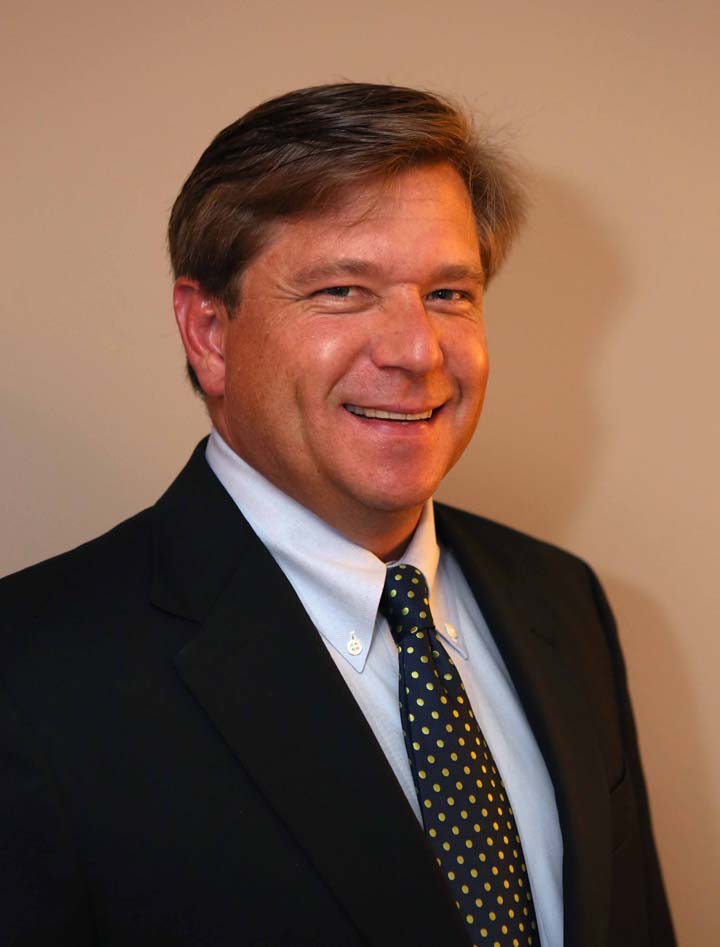
Downey studied political science at Whittier College in California, and he wasn’t sure what he wanted to do when he graduated. When his father offered to leverage contacts in the industry on his behalf, he took him up on it. Over the next seven years, he worked in three companies in three cities.
“I’m grateful for that because I sat in the underwriting chair during that period, and it allowed me to see the other side of the business, so to speak,” Downey said. “I know what it looks like when they receive our submissions, and that’s an important perspective.”
While he concentrated on politics at an institution known for that specialization, Downey took some accounting classes; and he recommends others do the same. “You need to look at a financial statement and understand what it means,” he said.
But Downey ultimately credits his success in the business on his ability to read people. In Albuquerque’s relatively close-knit construction community, face-to-face contact often trumps the numbers.
“You’ve got to read between the lines—there are a lot of clues that aren’t necessarily in words,” he said. “I like to get a sense of what the contractors’ office, desk, and truck look like, and how they interact with employees.”
Managing Relationships
One of the lures of working in surety is that the industry encompasses many corporate organizational profiles. While Downey heads an agency that operates in a relatively well-defined geographical area, the watchword at Lockton Companies is geographic diversity.
Based in Memphis, TN, Mark Duggan is a Unit Manager for Contract Surety at NASBP member Lockton, the world’s largest privately held insurance broker. He’s part of a team of 80+ professionals in the surety vertical, serving a nationwide client base.
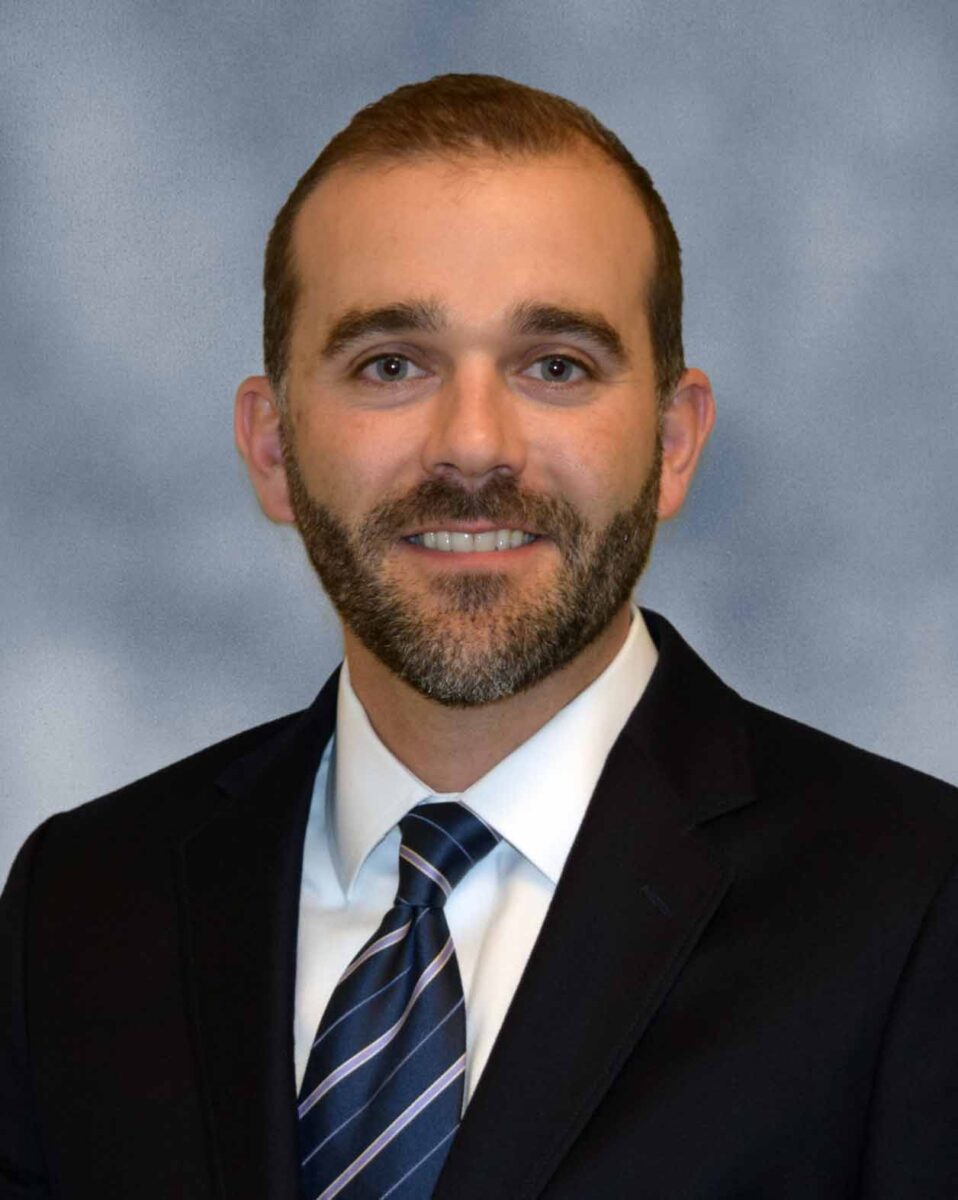
After he graduated from the University of Missouri with a management degree, Duggan started his career in investment banking. His entry-level role was process-oriented and featured sitting in front of a computer screen all day. Although that type of workday appeals to many, it wasn’t what Duggan was looking for.
“When I talked to a family friend about a role at Lockton, it was more about being in front of clients and underwriters, where every day’s different,” Duggan said. “That was very enticing because I could use interpersonal and relationship-building skills that I wanted to focus on.”
While he doesn’t have a direct selling role, the same skills tend to apply; and he uses them to manage his team and when he’s on the lookout to add to it. “The best surety folks are finance people who are also very outgoing and able to build great relationships with underwriters and clients,” he said.
It’s hard to combine those qualities—being able to do so is something that’s almost innate, Duggan said. But to be considered as trusted advisors in different business contexts, professionals must know how to ask good questions and then apply the answers to create solutions.
Duggan’s approach to professionalism is to practice the Golden Rule, with honesty and integrity the keys to building trust and reputation. “Keep learning, foster deep relationships, and build a huge network, because it’s only going to pay dividends as you continue to grow,” he said.
Reach Out for Support
Suffice it to say that surety isn’t an industry for introverts. Discipline, energy, and commitment are requirements; but so is the ability to sit down and start a conversation.
Good things happen when you do that, said Katie Kleinschmidt, Midsouth Regional Surety Manager at NASBP member USI Insurance Services, based in Atlanta, GA. Kleinschmidt took a winding path to surety, but as she’s reached out every step of the way, she’s gotten a constructive response.
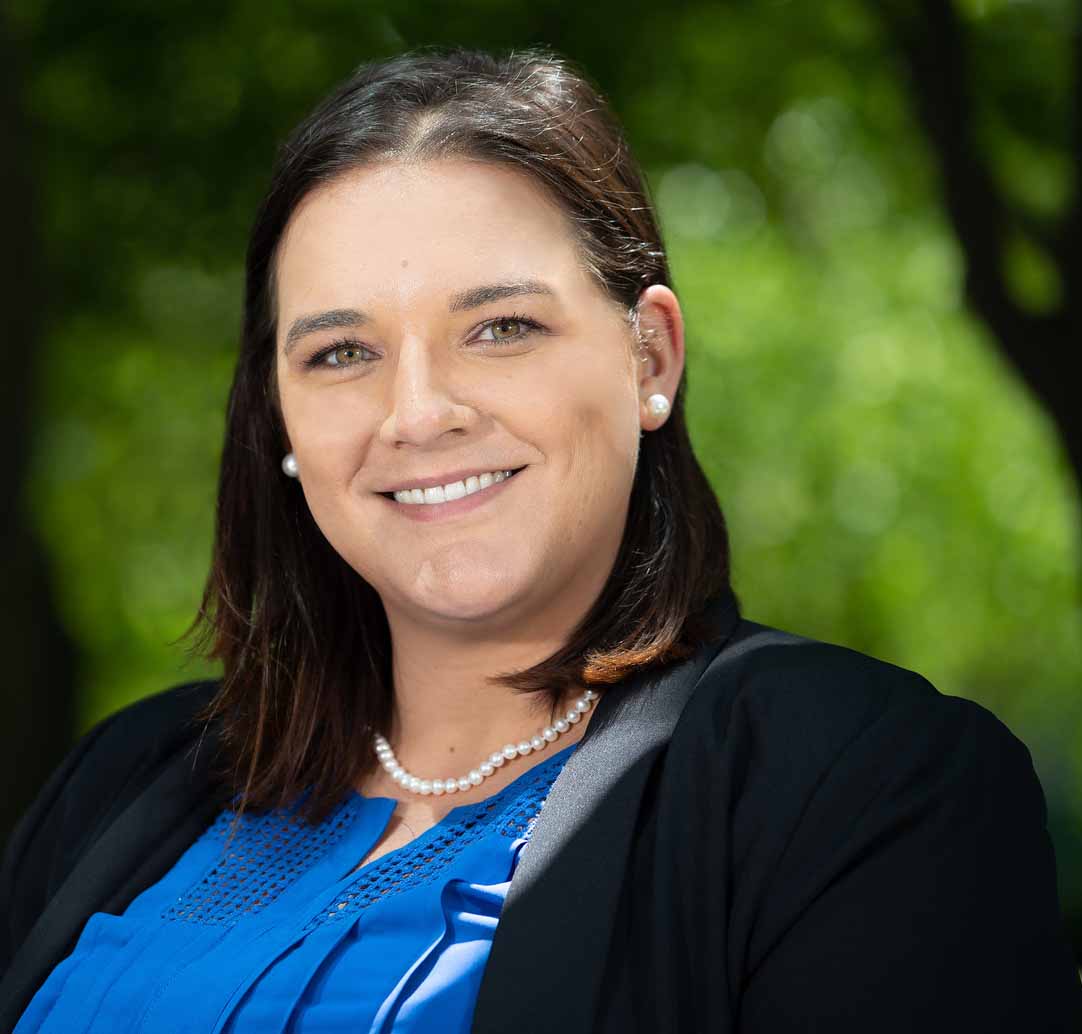
“Dive right in—the water’s fine, and we love new people,” she said. “It’s an all-encompassing, embracing environment; but everyone I’ve come in contact with has helped me grow.”
A rarity, Kleinschmidt lacked a college degree when she started in insurance. “I was 20, single, and Travelers was hiring; so I did their three-month course, got licensed, and worked in personal lines for a while,” she said.
But she knew she’d go back to school eventually. “I thought, I want to be successful in life,” she said. Kleinschmidt attended the University of Tennessee with a focus on business management and accounting. She started as a surety support person during her college years, not knowing much about the industry.
Then came the move to Atlanta, involvement as President of the Surety Association of Georgia, and a position at Lockton Companies before she took a role at USI in 2018. As a manager, Kleinschmidt looks for people who are open, ready to learn, and prepared to work.
“I’ve hired people with zero experience, even in insurance; and they’ve grown to be highly successful,” she said. “I have someone on my team now who went to school at College of the South in liberal arts, and she’s one of my shining stars.”
As others have said, it’s helpful to have a basic understanding of a financial statement. But a desire to work and an ability to identify deficiencies and ask the right questions is paramount. “Knowing when and how to ask the right questions is pivotal to success in this industry,” Kleinschmidt said.
Quality Always Wins
Helping new industry entrants find their own pathways to professionalism is part of NASBP’s mission. At Surety School, highly qualified practitioners, including Larry McMahon, Past President, usher students with as little as six months of work experience, up to as many as 20 years, through three class levels. “We’re continually evolving by adding new players,” he said.
McMahon has a track record of 22 years with NASBP member Alliant Insurance Services. He’s served there as Executive Vice President and Surety Manager since 2012, based in San Diego, CA.
At Siena College, McMahon studied political science and accounting and also played basketball. He drew on those eclectic credentials at NYU’s Turner School of Construction Management and then as a participant in the Management Development Program at the University of Southern California’s Marshall Business School in 1994-96.
When Seaboard Surety first hired him, McMahon fit a familiar pattern. “They were looking for kids who were well rounded but who worked their way through school,” he said. “They didn’t want 4.0 students; they wanted people who had the book knowledge and the street knowledge, I’ll call it.”
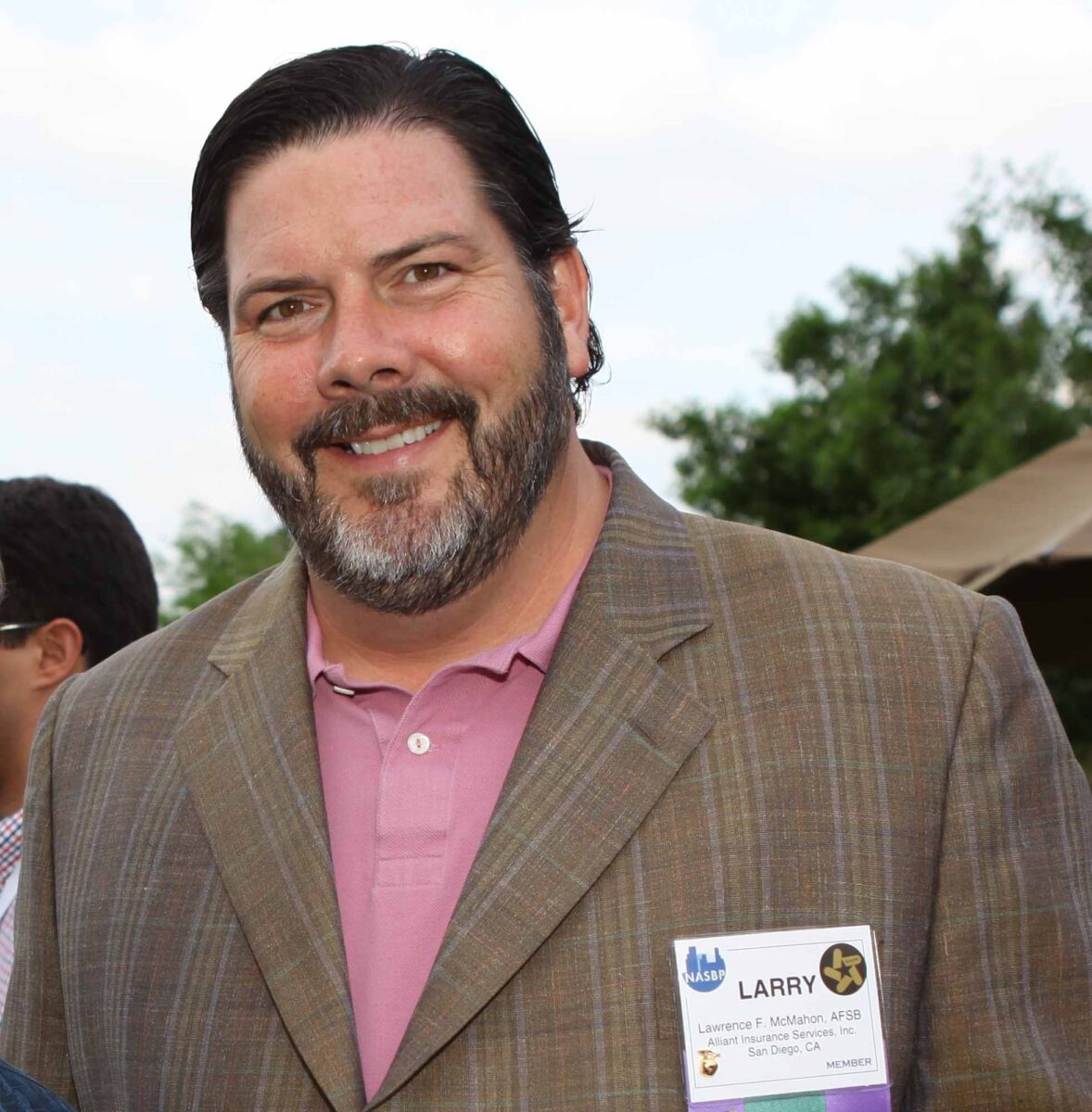
That being said, McMahon’s dedication to the Surety School, where’s he’s taught for more than 20 years, reflects his commitment to continual learning. “I teach because I learn more at those schools than I’ve forgotten,” he said. “Students ask questions that you don’t think about very often, and it’s a great way to reinvigorate your knowledge.”
Division 1 athletics was excellent preparation. “You’re going to school, which is a full-time job; and you’re also an athlete, which is also a full-time job,” he said. “You’re looking at a full day of managing your athletics on top of your school.”
And as he brings two of his children into the industry, he counsels the same success strategies. “Have many mentors—not just one,” he said. “And call the people you report to and ask them interesting questions. Because they always want to talk about their business.”
 Surety Bond Quarterly Professionals in Surety Bonding
Surety Bond Quarterly Professionals in Surety Bonding
